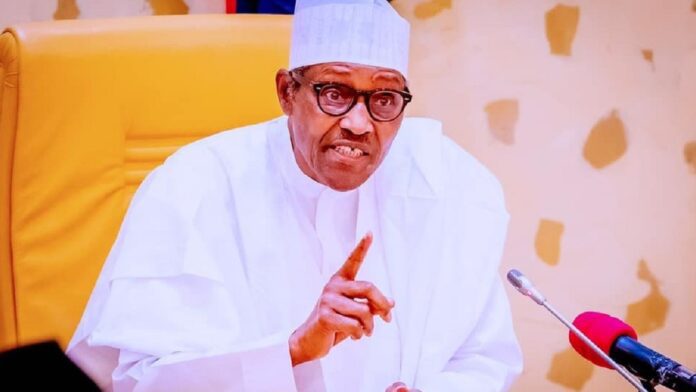FG Slowdown Capital Projects, Estimates N19.23trn Spending Plan for 2023
As the race to 2023 election started to gain momentum, the Federal Government of Nigeria (FGN) has indicated a plan to cut capital spending by more than 25%, a recent document from the finance ministry shows.
For President Muhammadu Buhari, it is time to go home as the election year is fast approaching, giving rise to uncertainties in the political environment and policy formulations.
Mr. Buhari signalled plans to cut back capital projects amidst weak inflow from oil receipts, leading to a sharp decline in government aggregate revenue. The nation’s revenue risk is worsened by the lower participation of foreign investors in the local economy.
Government income faces buckets of uncertainties amidst dislocation in the global economy. Nigeria’s inflation rate worsened to 19.64% in June, data from the National Bureau of Statistics showed.
Analysts’ consensus remains that the consumer price index that measures inflation movement would remain under pressure in the second half of 2022 due to insecurity in the Northern part of the country.
This has reduced food production capability as kidnapping economy continues to boom while the Nigerian government remains helpless against the activities of a terrorist group- Boko Haram. READ: Nigeria – so many people, too little reform
Detail from FG’s budget call circular for the fiscal year 2023 sets aggregate expenditure at N19.76 trillion, translating to more than 14% year-on-year increase in Nigeria’s budget amidst an inflation surge.
In the current year, Nigeria approved spending plan was N17.3 trillion. This was prepared on the assumption that the benchmark oil price will average $73 per barrel on 1.60 million barrels of oil per day an exchange rate of N410.15 to a United States dollar.
Apart from oil price, the assumption used to prepare the 2022 budget has failed so far. Average crude oil production printed at 1.32 million barrel per day in the first half while official exchange rate depreciated to N415.19 per dollar.
Budget 2022 was prepared based on an aggregate revenue of N9.97 trillion -including government-owned enterprises – was projected to fund the revised 2022 Amended Budget of N17.3 trillion.
This implies a deficit of N7.35 trillion -or 3.99% of gross domestic product – which is to be financed mainly by borrowing. The document indicates that from about N5.9 trillion approved for capital spending in 2022, N773.63 billion or 42.4% had been released for projects in the first four months of the year.
The aggregate amount available for capital expenditures in the 2023 budget is estimated at N4.37 trillion, representing 15% of total expenditure (short of the 30% target set by the current administration), and is 25.4% less than the 2022 provision of N5.86 trillion.
The finance ministry said in the circular that the provision for capital expenditure has been constrained by low revenues, increasing personnel and pension costs, as well as rising debt service costs.
It added that the continual provision of fuel and electricity subsidies is a major drainer to overall government revenues and fiscal position. In furtherance of its inclusiveness agenda, FG intends to sustain the Social Investment Programme (SIP) as N350 billion is proposed to be allocated for the recurrent component of the SIP. #FG Slowdown Capital Projects, Estimates N19.23trn Spending Plan for 2023












